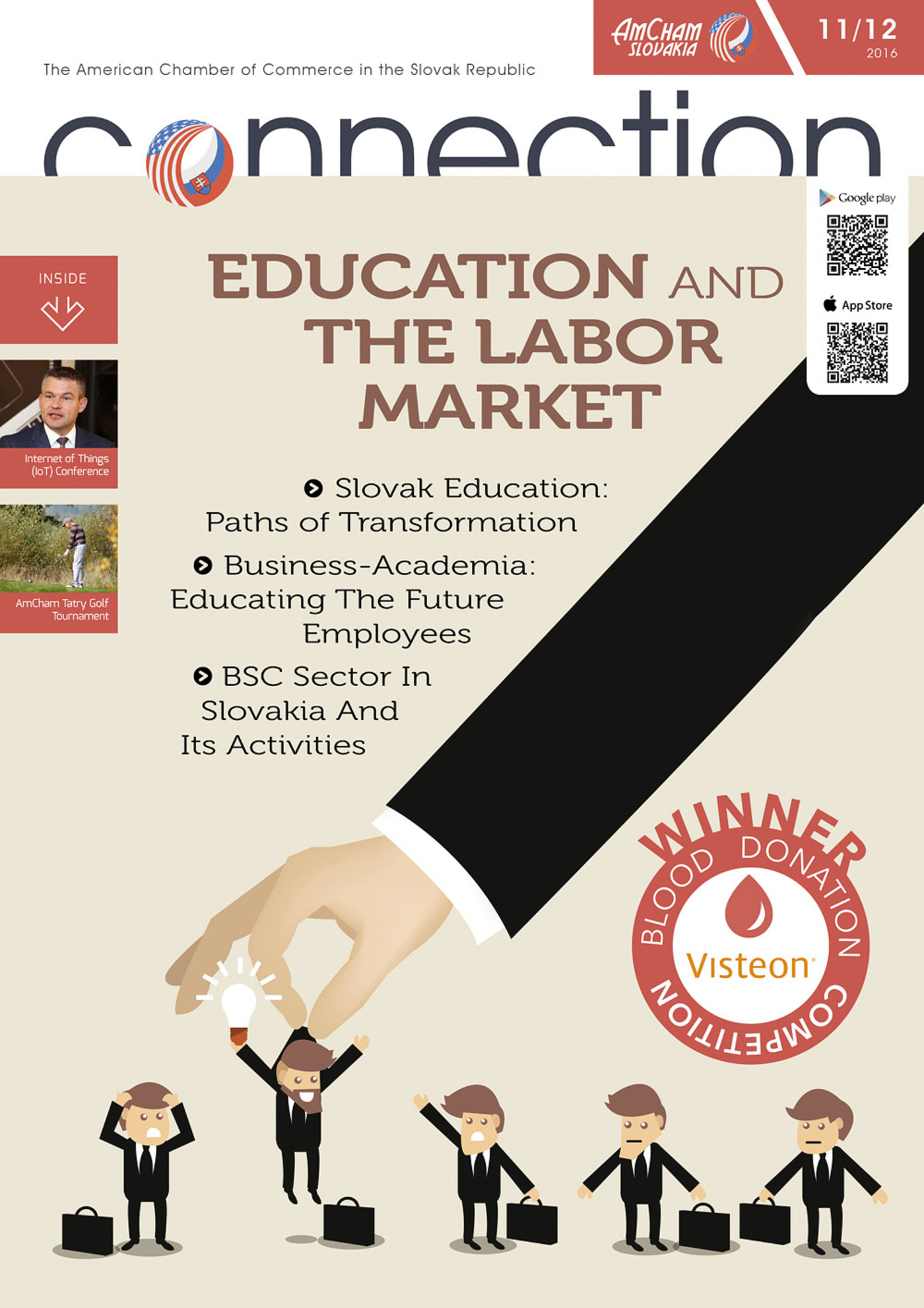Alarming signals in education
All international rankings, surveys, and employers’ direct experience confirm that our system of education is in crisis. Almost one quarter of the unemployed are young people under 29. International assessments such as PISA testing show that Slovak students are currently among the weakest in all tested parameters. Not all teachers respond to the results of cognitive research which show how to teach properly. At this year’s World Economic Forum in Davos, top visionaries discussed the world’s further development and stated that the technological revolution in the next two decades would bring about a significant shift in demand for the required skills. Our school system does not develop these skills. Experts also predict that extreme automation will quickly stamp out the competitive advantage of cheap labor economies.
How the problem in education is viewed by companies
According to a qualitative research into IT companies’ recruitment needs, conducted by Pontis Foundation, company representatives think that one of the culprits for the shortage of quality graduates in the labor market are the schools themselves. Companies in the IT sector view schools and their system as an obstacle to a faster introduction of changes which would lead to a production of a higher number of quality graduates. Another problem that companies mention is an insufficient number of graduates with some experience and knowledge of corporate life or team work. On the one hand, they blame this on teachers, who do not prepare students for the reality of the market; on the other hand, they also blame students themselves, who do not initiate their own projects.
Life skills
In the context of global trends, the current situation in education in Slovakia and in the context of how companies see this problem, a change in the perception of the value of education needs to happen. This will concern both the traditional school system and the public. This new approach will call for a readiness to face changes and acquire the life-long ability to learn new things by focusing on the following skills:
- support innovation, creativity, originality, experimenting,
- develop social and emotional intelligence,
- teach critical thinking,
- develop leadership and independence,
- develop hard skills necessary for practical life and for the period of informatization and technological development (languages, programming),
- create space for trying out things, connect education and practice, develop business skills,
- develop global competences necessary for life and success in today’s globally interconnected world.
We are still “only” compensating
Many of these skills are currently supported by companies’ philanthropic activities or HR policies. The figures which companies report in relation to their philanthropic activities in 2015 show that up to 76% of the donations and grants for education can be classified as a compensatory type of support. Support of this kind does not eliminate the shortcomings and deficiencies of the education system as such, but compensates for them. It enables immediate intervention in the building of infrastructure, improvement of the quality of material equipment, or acquisition of such skills and knowledge which do not require long-term exposure. An example is a project which teaches young people leaving children’s homes how to behave at job interviews. Developmental type of education represents 9% of the total support for education. Support of this kind does not “only” compensate for the shortcomings of the system, but extends educational services and makes them available to a bigger group of institutions and clients. Support of this kind is “developmental” because it is primarily focused on disseminating the acquired know-how. An example is a programming course aimed at young unemployed people. Through supported projects, the program helps develop such skills which its participants have not acquired in the course of their formal education. The support which would influence the making of rules, setting rules and initiating systemic changes – a transformational type of support – accounts for 15% of corporate philanthropy. An example is the support for the realization of surveys on the perception of education in Slovakia or activities which aim to improve the educational environment at schools.
Change from below together with change from above
If we want the education system in Slovakia to produce a permanent supply of young people who are prepared for life and have skills for the twenty-first century, changing the lens of perception of the recruitment of quality graduates will be necessary. Companies’ compensatory and developmental activities may produce a certain number of people for the labor market, but this model cannot be sustained in the long term. Because of all the alarming signals in education, companies would have to invest increasingly more money in the compensation of all shortcomings. Reforms are necessary, but all of them overlook the complexity of the system. Teachers, principals, parents, pupils, and students need to be prepared for the change and provided support, and their perception of education must be changed. It cannot be achieved by any single law, or by solitary activities of civic associations. It will be necessary to create a platform to search for the most effective projects shaping skills for life, provide them with financial and pro bono support, measure their impact and success in relation to the money invested, bring together leaders in education, create space for discussions, exchange of experience, and ideas for changes in education, scale the projects with the most significant impact, and join efforts to help the state to improve education bottom-up and push for the necessary changes in the system.
Norbert Maur, Program Coordinator, Pontis Foundation



Follow us